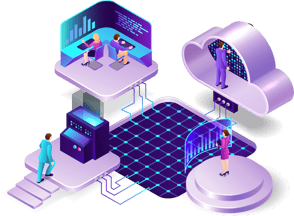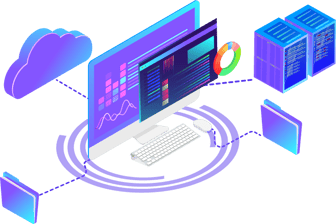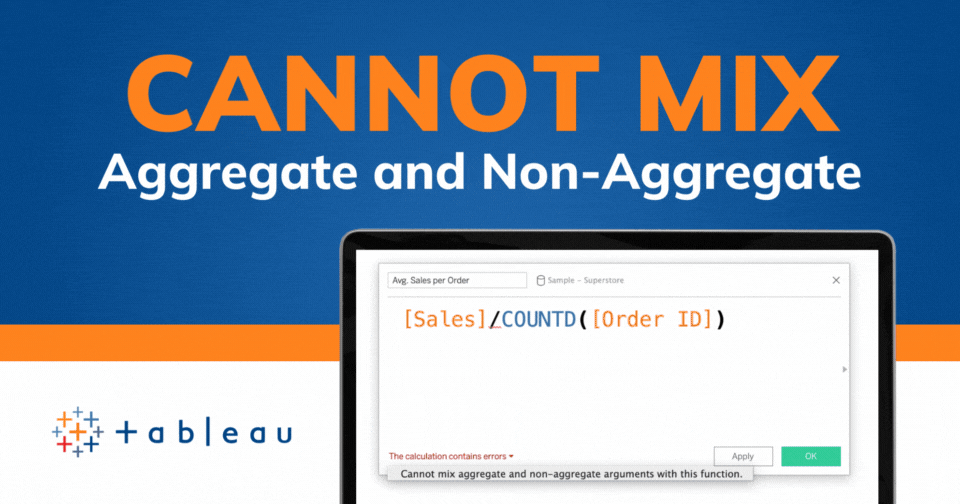Tableau Conference 2025 | Know Before You Go
If you’re a data enthusiast, analytics professional, or just someone curious about Tableau’s latest innovations, the Tableau Conference 2025 is your...
.png)
Data’s importance in the business world has been growing for some time. But the pandemic pushed that trajectory into overdrive, leapfrogging the technology and the need for it by several years.
Business leaders know this. Those who haven’t already made data a central part of their strategy are now scrambling to do so. A study by EY paints a very clear picture: 93% of companies plan to either continue or level up their investments in their data and analytics.
Given how much is being invested in data (not just in terms of money, but also time and other company resources), it’s only natural that CEOs and business leaders want to make sure they’re getting the most bang for their buck.
So for many businesses, that brings up an essential question:
how can we get the most value out of our data?
There are two options for building data analytics capabilities:
1) Hire, manage, and retain an in-house team
2) Outsource to trusted analytics managed service - like DataDrive’s Analytics Accelerator
The second option is a more or less a one-decision deal — you find the right provider and the journey towards data-driven begins. You receive insightful analytics capabilities at your fingertips without managing the technical details of data architecture and automation.
So let’s take a closer look at the first option. This route is for those business leaders who prefer a DIY approach and want to have full control of every aspect of building the team - from hiring and training the key people to integrating the department into the existing business structure.

Before you can build an effective team, it’s important to clarify what it will actually do. Both in terms of the day-to-day duties and how it fits into the organization’s overall vision and mission.
In general, a data analytics team provides valuable support such as:
Putting together a versatile team that can do all of the above is a tall order. Since putting together stellar analytics teams is what we do, we thought we’d share some of our insider tips.
Here are the key roles you need to ensure your data capabilities are locked and loaded:
Every well-run department has a top-notch leader at the helm. This pivotal person not only oversees the team (building the roadmap, keeping people on task, and tracking outcomes), but they’re also a kind of nerve center for the entire organization since they prioritize analytics initiatives with business impact (i.e. the ROI of data).
The business analyst acts as a bridge between IT and the business arm of the organization. Their role is to leverage data analytics to identify and solve problems, take a deep look at processes, establish requirements, and provide expertise to senior leadership and other stakeholders.
Data strategist is another key role anchored in vision-making and problem-solving. The strategist defines business objectives and then generates insights from the data that further those objectives. They connect the granular “insider baseball” details of data to the company’s business goals, communicating in a way that’s clear to both data geeks and laypeople alike.
The data architect is both a model builder and a data analyzer. They’re experts at creating high-performing models that are nimble and laser accurate when generating reports and insights. Because of this, they tend to be the “answer people” of the data team, ensuring that decision-makers have the info they need to go forward confidently and with clarity.
Just like in the world of bricks and mortar, data engineers are your builders who make the whole system work. But instead of engineering things like highways, canals, and sewage systems, they design and develop the data infrastructures that will make data assets available across the organization and ensure they are updated in real-time (or as close to it as possible). This infrastructure systematizes data collection and integration, eliminating labor-intensive, error-prone manual management of data sources, and transforming raw data into usable, actionable insights.
For many non-tech people, the point at which data becomes “real” is when it is visualized. That’s why a report developer is an essential role on an analytics team. This key player creates reports, dashboards, and other visual depictions that allow business users to access data and implement it in their day-to-day tasks.
Although we’re big believers that data is for everyone, especially now that businesses of all shapes and sizes have direct access to powerful data analytics tools like Snowflake and Tableau, the reality is that data is both a science and an art. Expertise matters. So does experience.
So even when you have the best intentions of building a high-performing team, things can go awry. You may not know where to look to find the cream of the crop talent. Or you may have a pesky job opening that just can’t seem to attract the right candidate, no matter how many times you post it.
And let’s not forget the price tag.
All told, a fully functioning in-house data team will run a business in the ballpark of $500K. Per year.
Beyond the costs of employing a team, software licensing, cloud hosting expenses, ongoing training, professional development, upgrades and maintenance, data security audits, and more add to the list of hidden costs of data-driven capabilities.
The war for data talent is incredibly tough right now as the most talented data practitioners can command high salaries and request meaningful challenges at all stages of an organization’s data-driven journey.
For some organizations, the affordability (and just the plain old convenience) of data analytics managed services are the right solution. You get the expert data analytics you need, with no worries about budgeting for a full-time in-house team or undertaking a lengthy hiring process.

Our DataDrive team partners with fast-growing organizations to help them get the most from their data and drive new opportunities. With experienced data professionals in every role, a proven reporting platform, and the latest tools and software, like Tableau and Snowflake, we offer our powerful analytics accelerator to business leaders who want to hit the ground running.
-2.gif)
If you’re a data enthusiast, analytics professional, or just someone curious about Tableau’s latest innovations, the Tableau Conference 2025 is your...

Tableau Plus is the new premium offering from Tableau, a leading data visualization and business intelligence platform. It builds upon the...

If you've spent any time working with Tableau, you've likely encountered the dreaded "Cannot Mix Aggregate and Non-Aggregate Arguments" error. It's a...